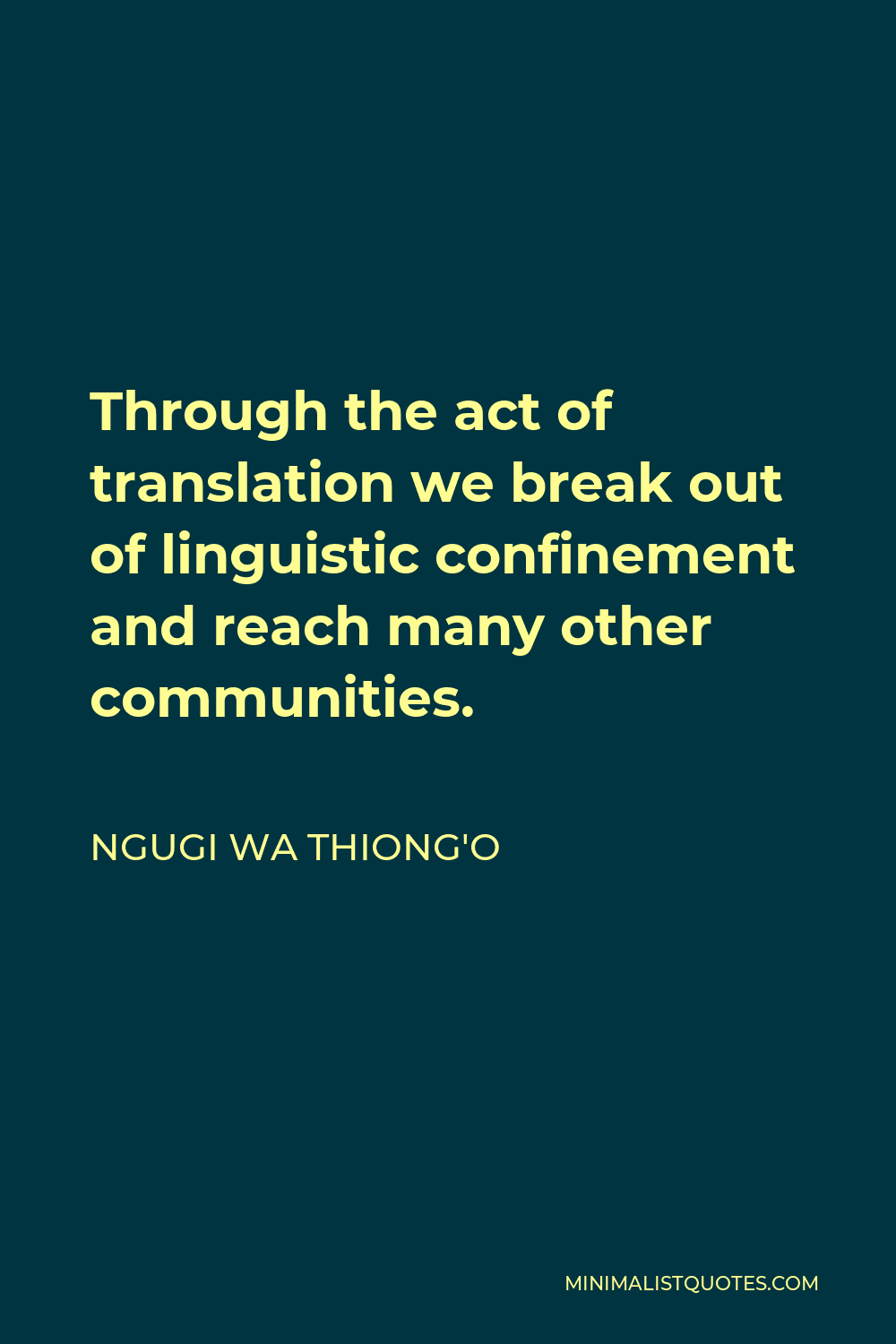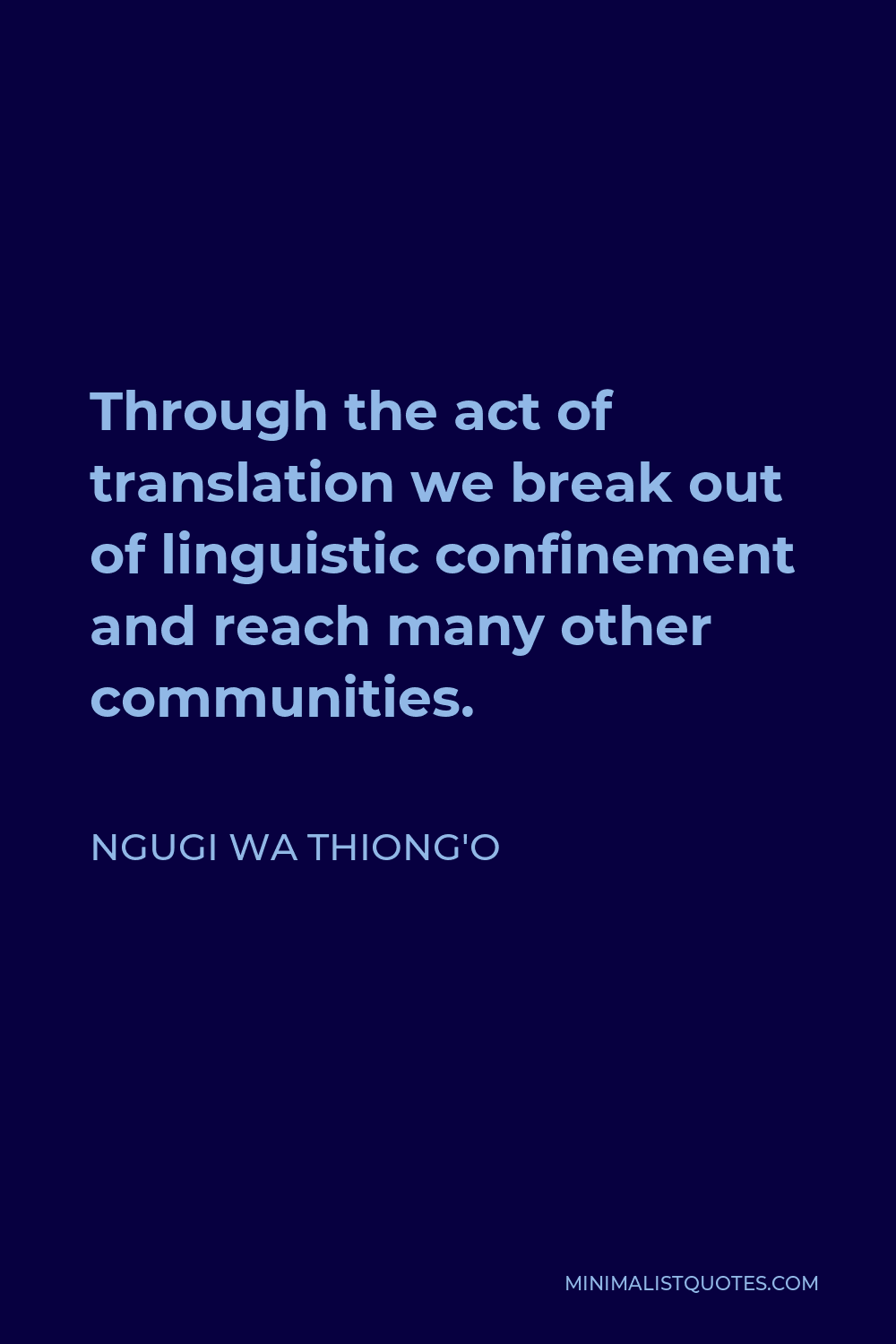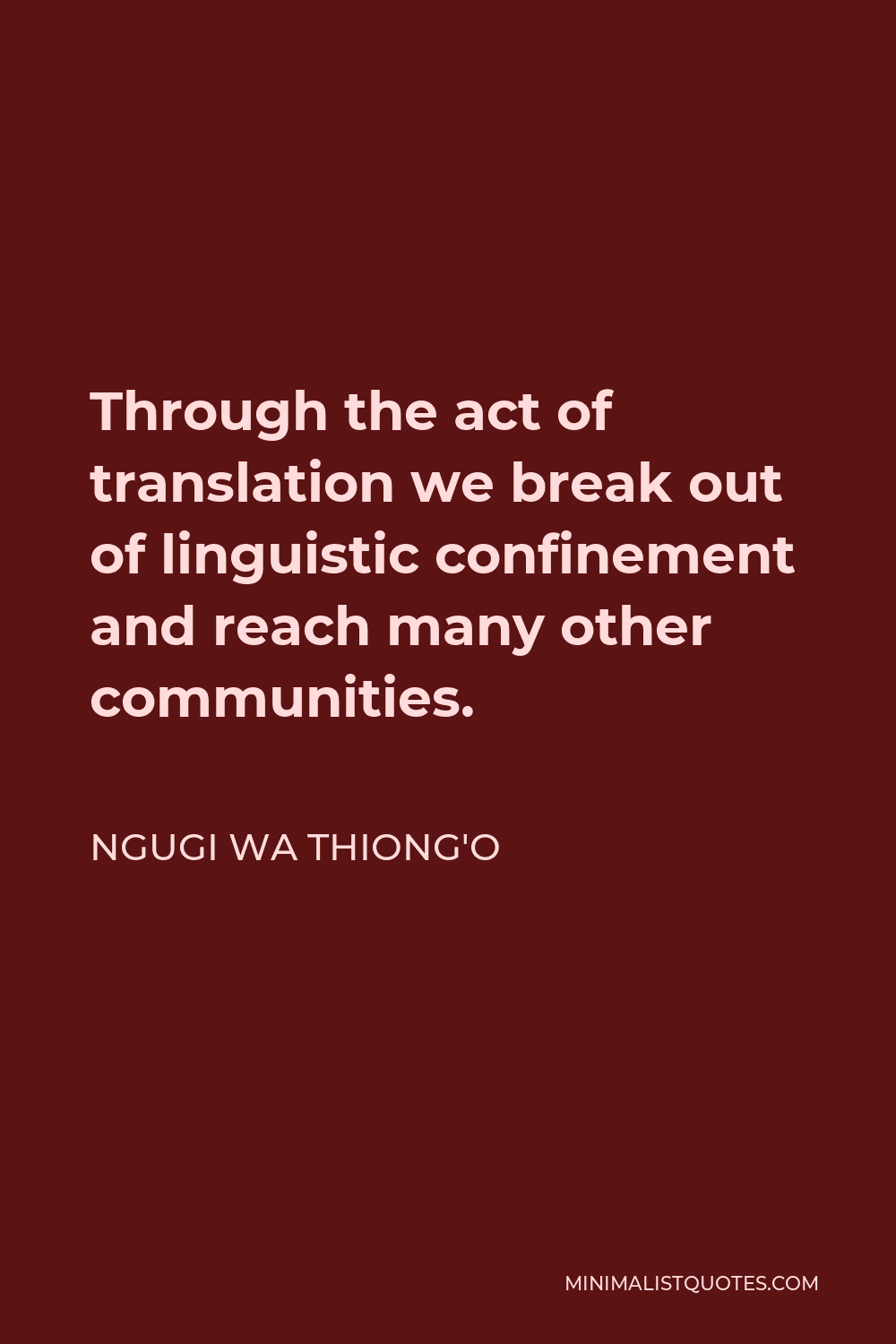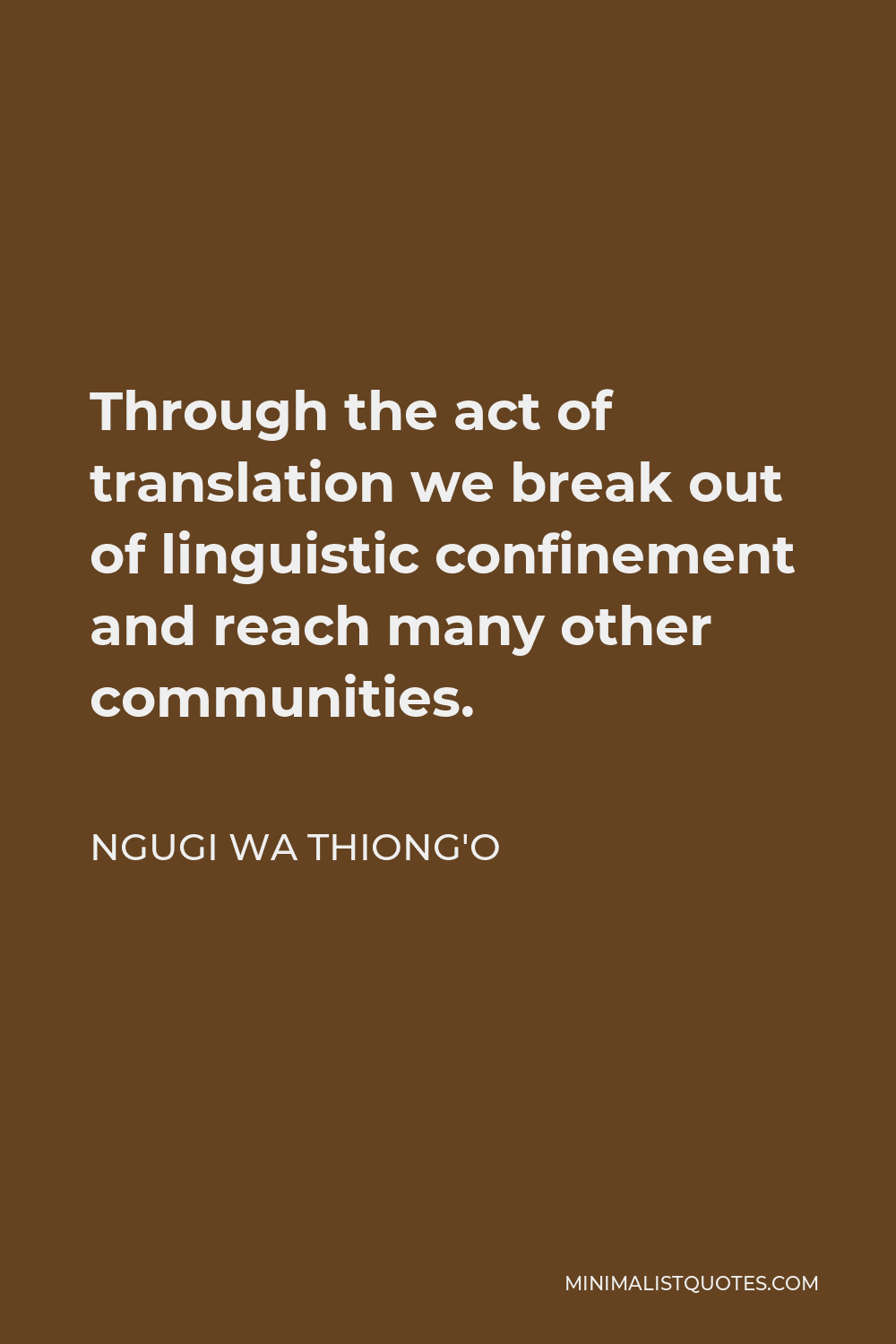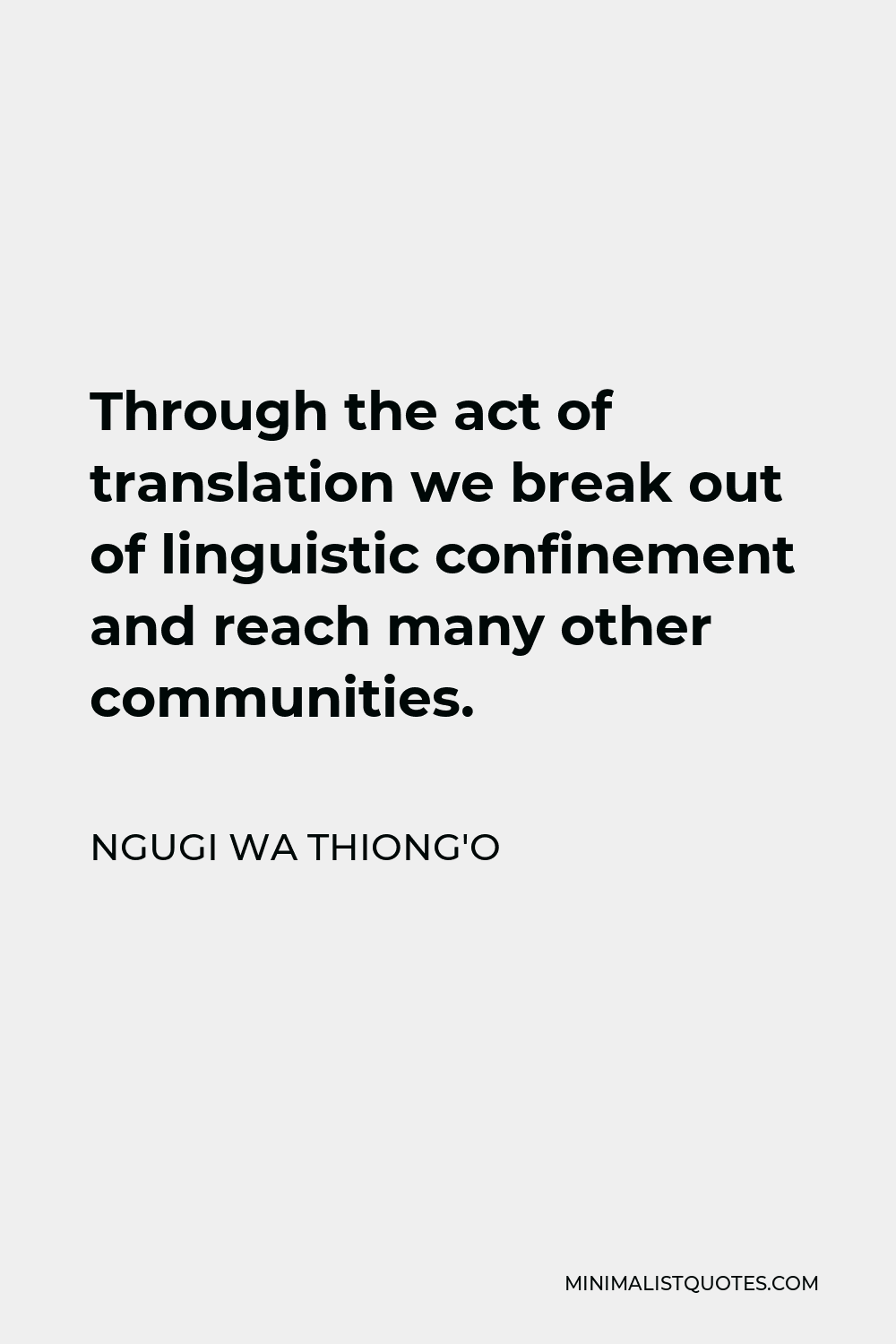Writing in African languages became a topic of discussion in conferences, in schools, in classrooms; the issue is always being raised – so it’s no longer “in the closet,” as it were. It’s part of the discussion going on about the future of African literature.
NGUGI WA THIONG'OThrough the act of translation we break out of linguistic confinement and reach many other communities.
More Ngugi wa Thiong'o Quotes
-





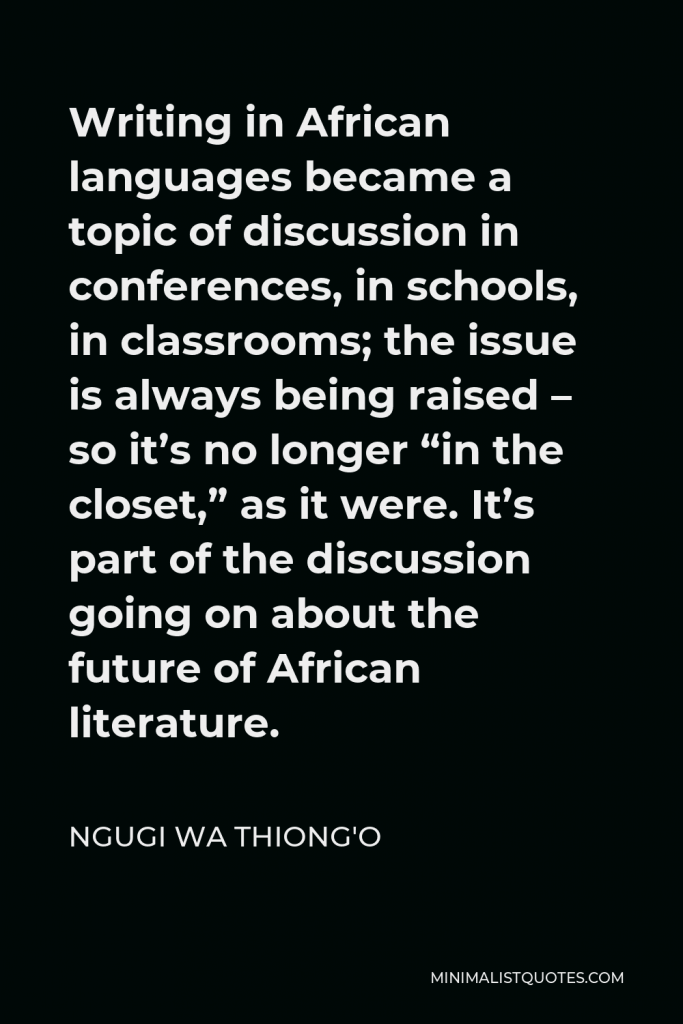

-





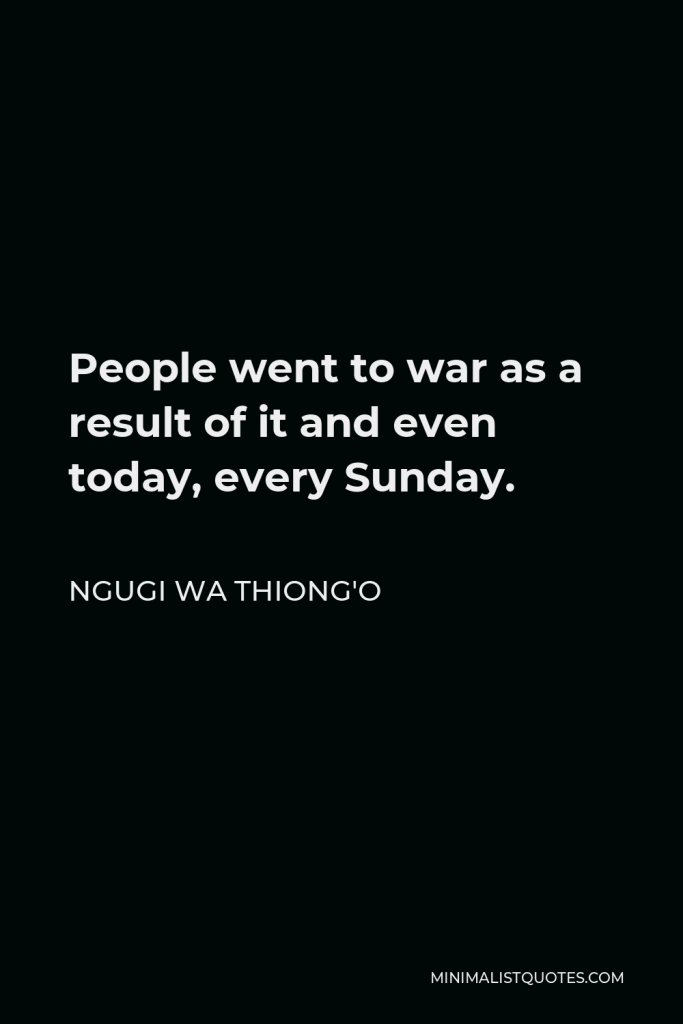

People went to war as a result of it and even today, every Sunday.
NGUGI WA THIONG'O -





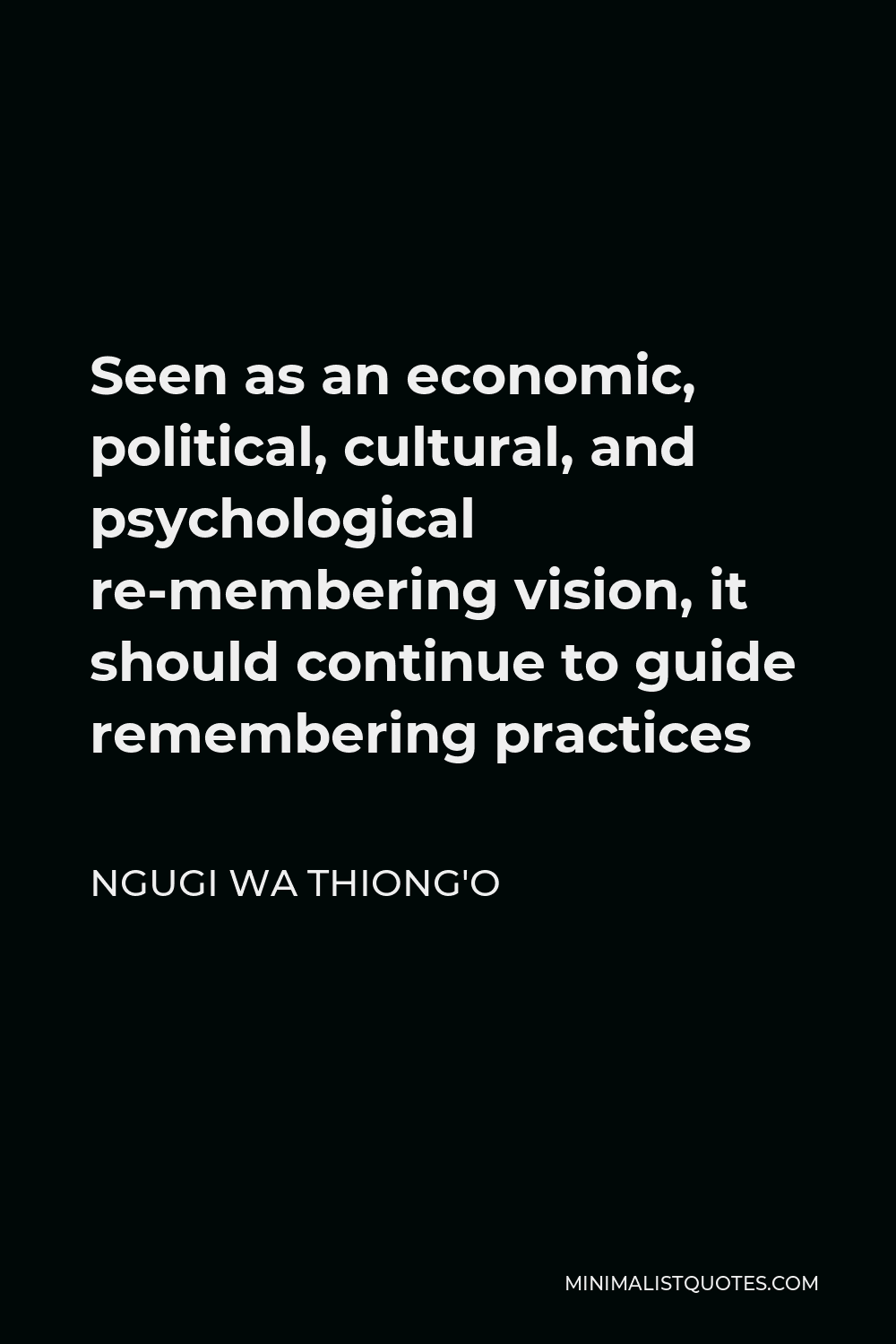
Seen as an economic, political, cultural, and psychological re-membering vision, it should continue to guide remembering practices
NGUGI WA THIONG'O -





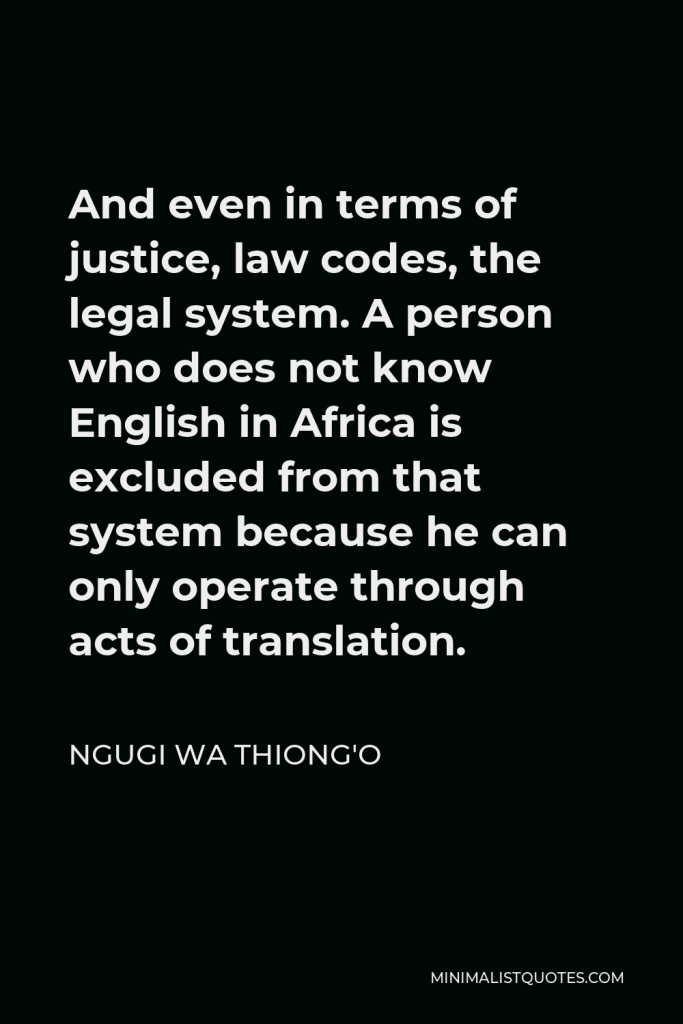

And even in terms of justice, law codes, the legal system. A person who does not know English in Africa is excluded from that system because he can only operate through acts of translation.
NGUGI WA THIONG'O -





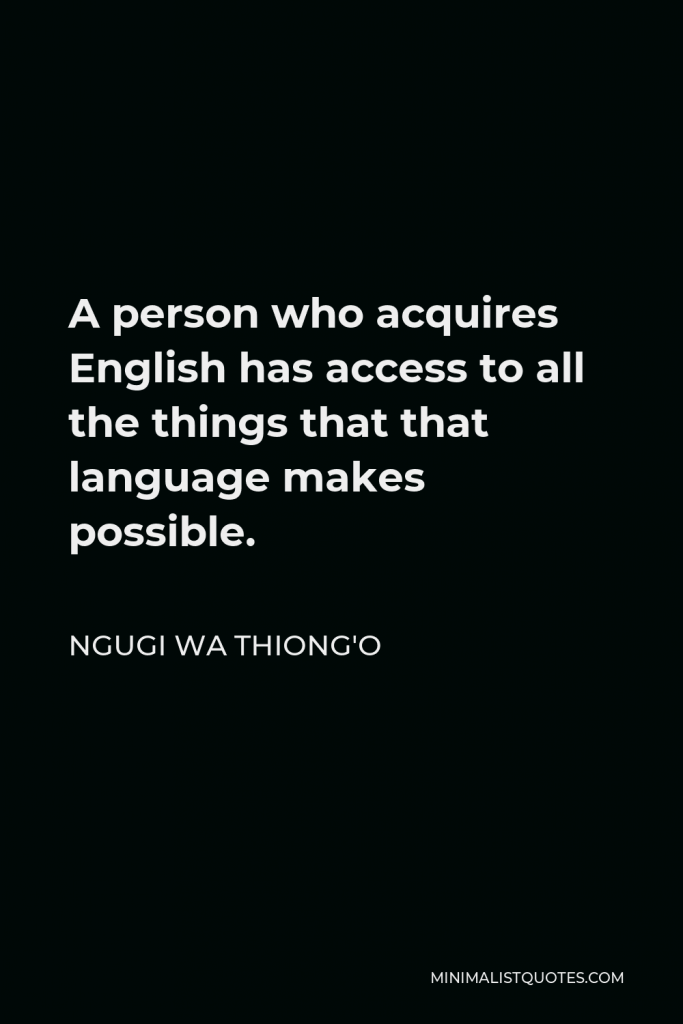

A person who acquires English has access to all the things that that language makes possible.
NGUGI WA THIONG'O -





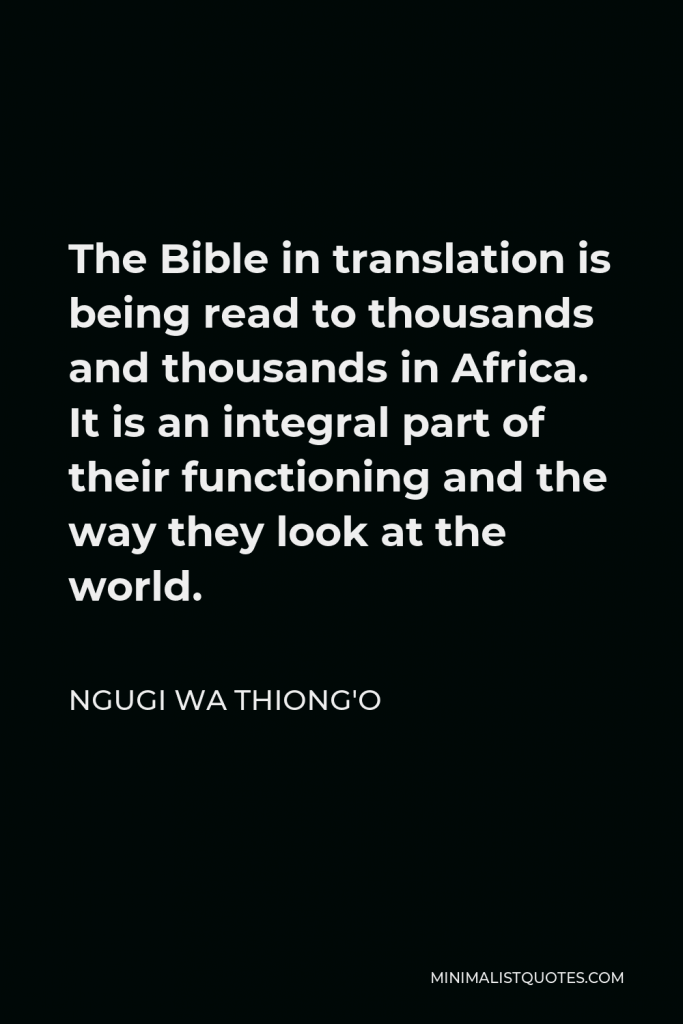

The Bible in translation is being read to thousands and thousands in Africa. It is an integral part of their functioning and the way they look at the world.
NGUGI WA THIONG'O -





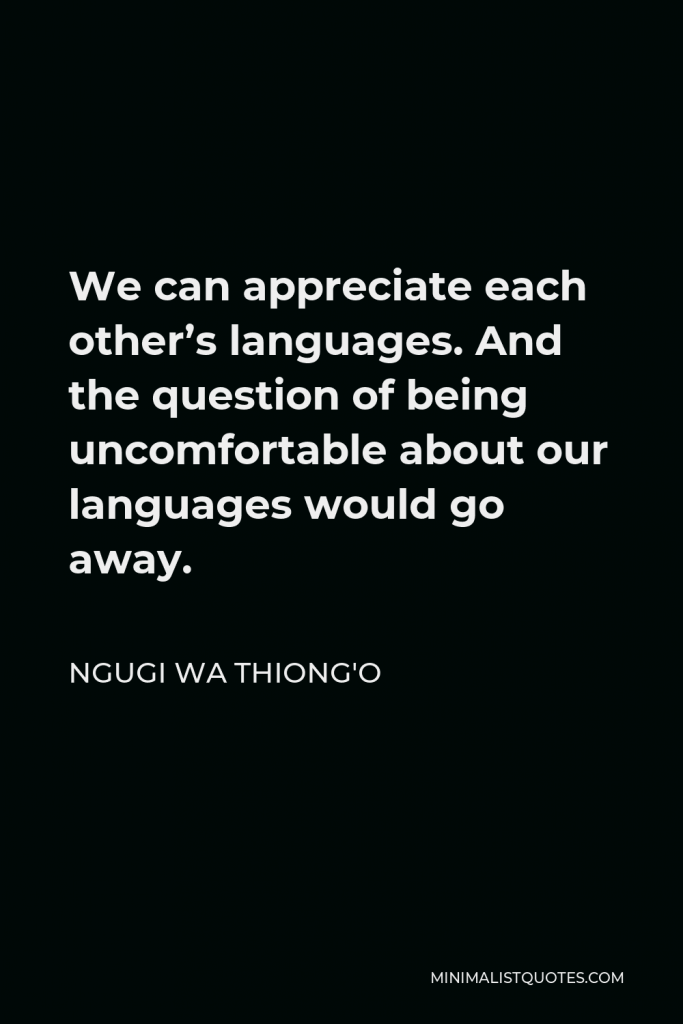

We can appreciate each other’s languages. And the question of being uncomfortable about our languages would go away.
NGUGI WA THIONG'O -





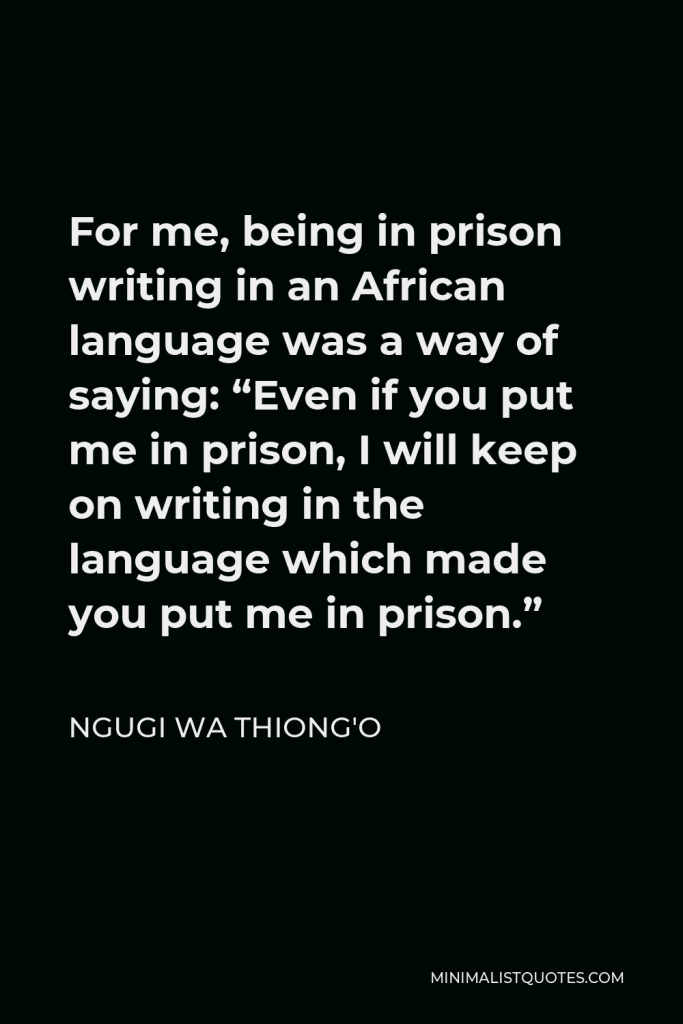

For me, being in prison writing in an African language was a way of saying: “Even if you put me in prison, I will keep on writing in the language which made you put me in prison.”
NGUGI WA THIONG'O -





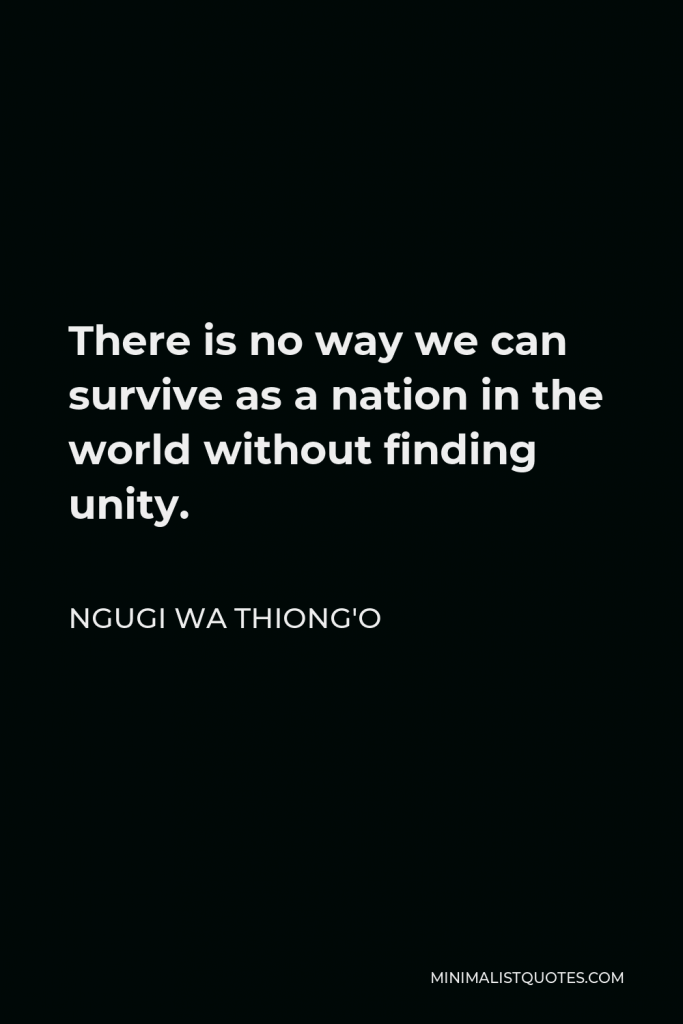

There is no way we can survive as a nation in the world without finding unity.
NGUGI WA THIONG'O -





![Ngugi wa Thiong'o Quote - Those who strive to build a protective wall around it, and those who wish to pull it down; those who seek to mould it and those committed to breaking it up; those who aim to open our eyes, to make us see the light and look to tomorrow […] and those who wish to lull us into closing our eyes](https://minimalistquotes.com/wp-content/uploads/2022/09/those-who-strive-to-build-a-protective-wall-around-683x1024.jpg)

Those who strive to build a protective wall around it, and those who wish to pull it down; those who seek to mould it and those committed to breaking it up; those who aim to open our eyes, to make us see the light and look to tomorrow […] and those who wish to lull us into closing our eyes
NGUGI WA THIONG'O -





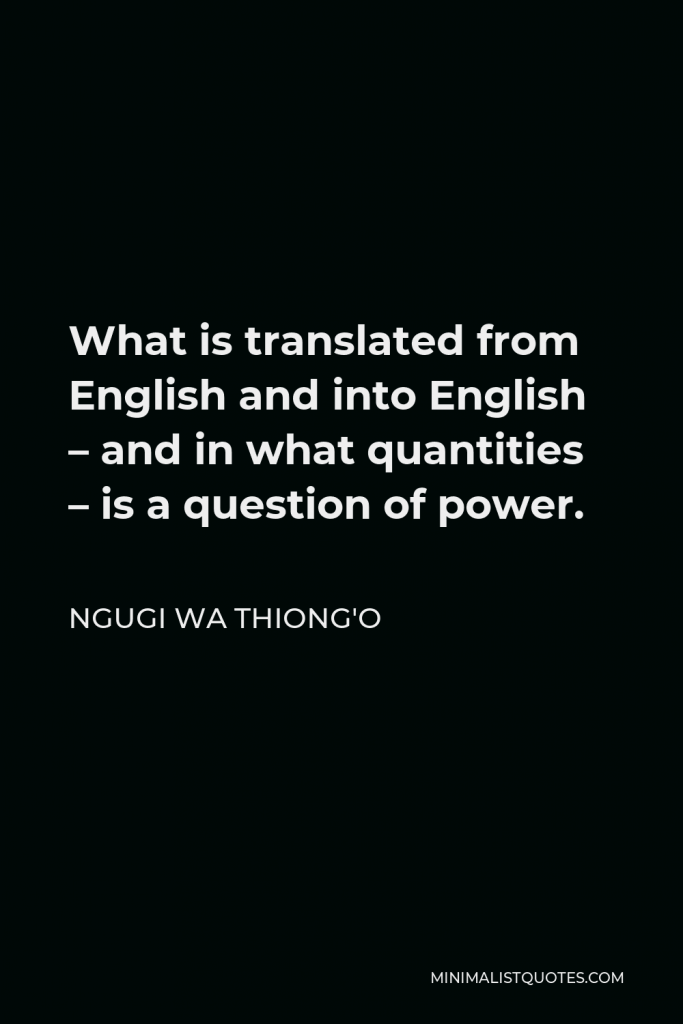

What is translated from English and into English – and in what quantities – is a question of power.
NGUGI WA THIONG'O -





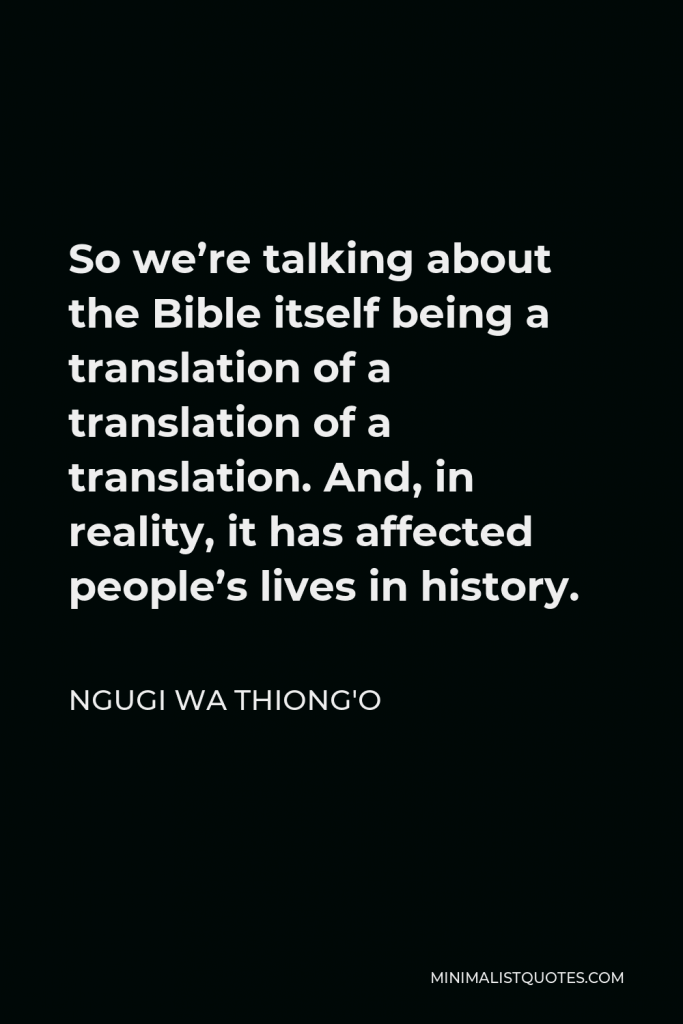

So we’re talking about the Bible itself being a translation of a translation of a translation. And, in reality, it has affected people’s lives in history.
NGUGI WA THIONG'O -





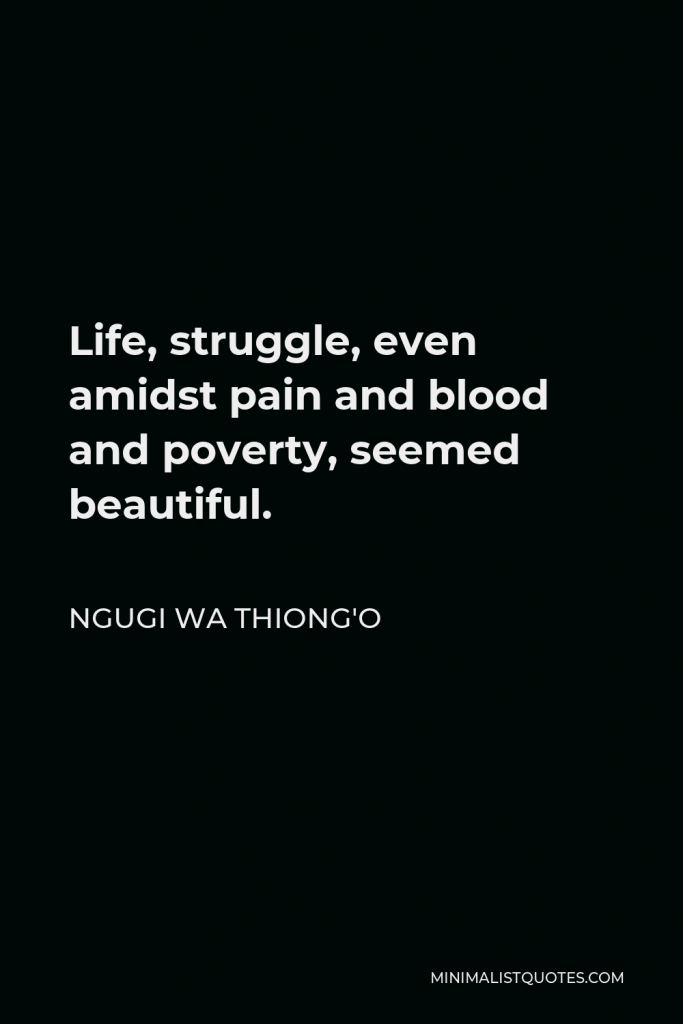

Life, struggle, even amidst pain and blood and poverty, seemed beautiful.
NGUGI WA THIONG'O -





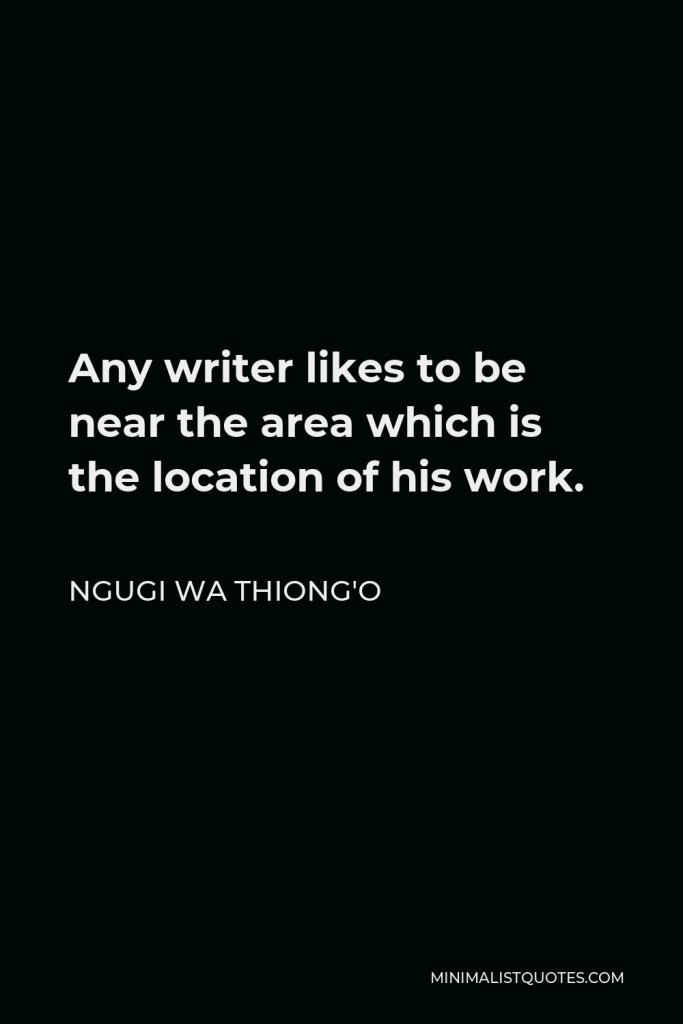

Any writer likes to be near the area which is the location of his work.
NGUGI WA THIONG'O -





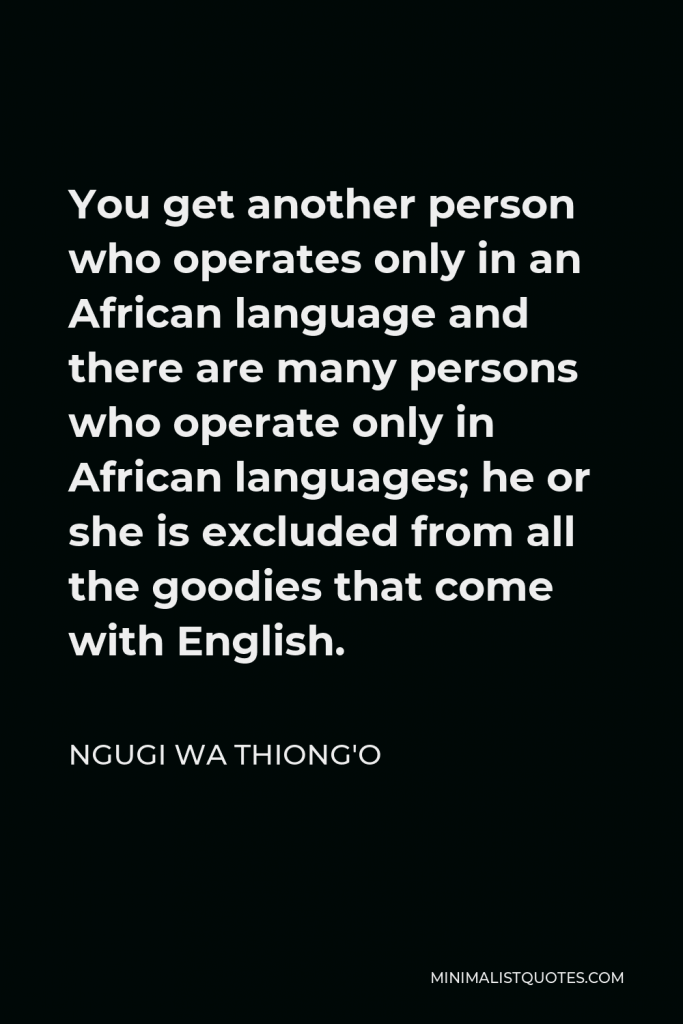

You get another person who operates only in an African language and there are many persons who operate only in African languages; he or she is excluded from all the goodies that come with English.
NGUGI WA THIONG'O -





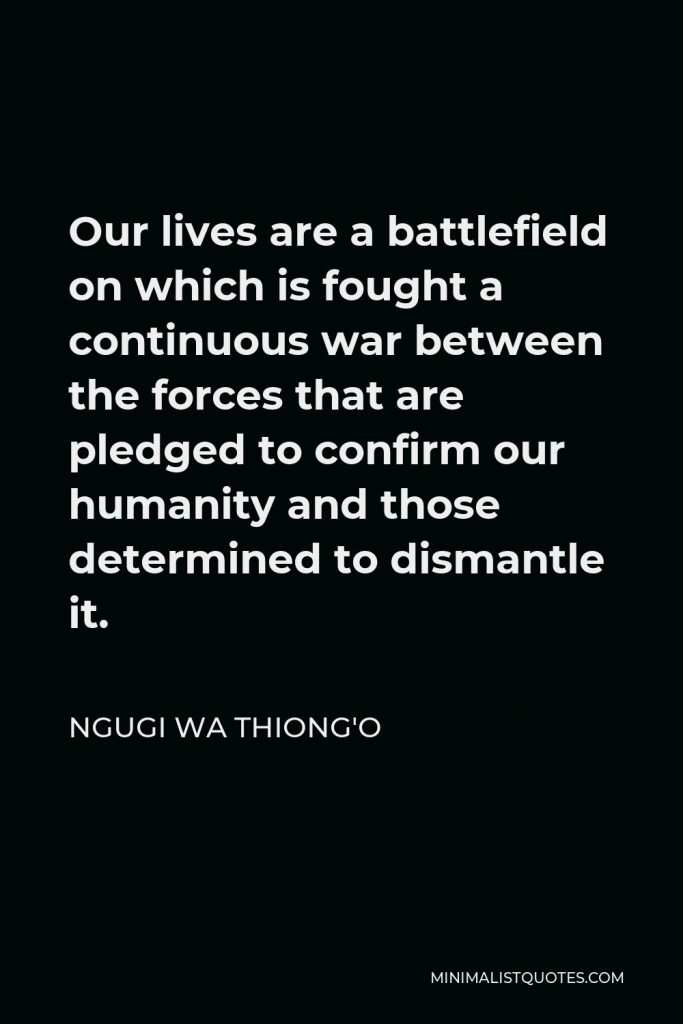

Our lives are a battlefield on which is fought a continuous war between the forces that are pledged to confirm our humanity and those determined to dismantle it.
NGUGI WA THIONG'O

